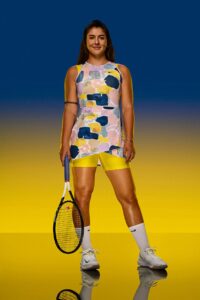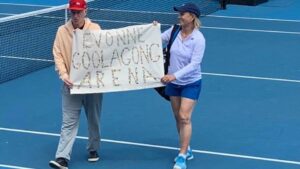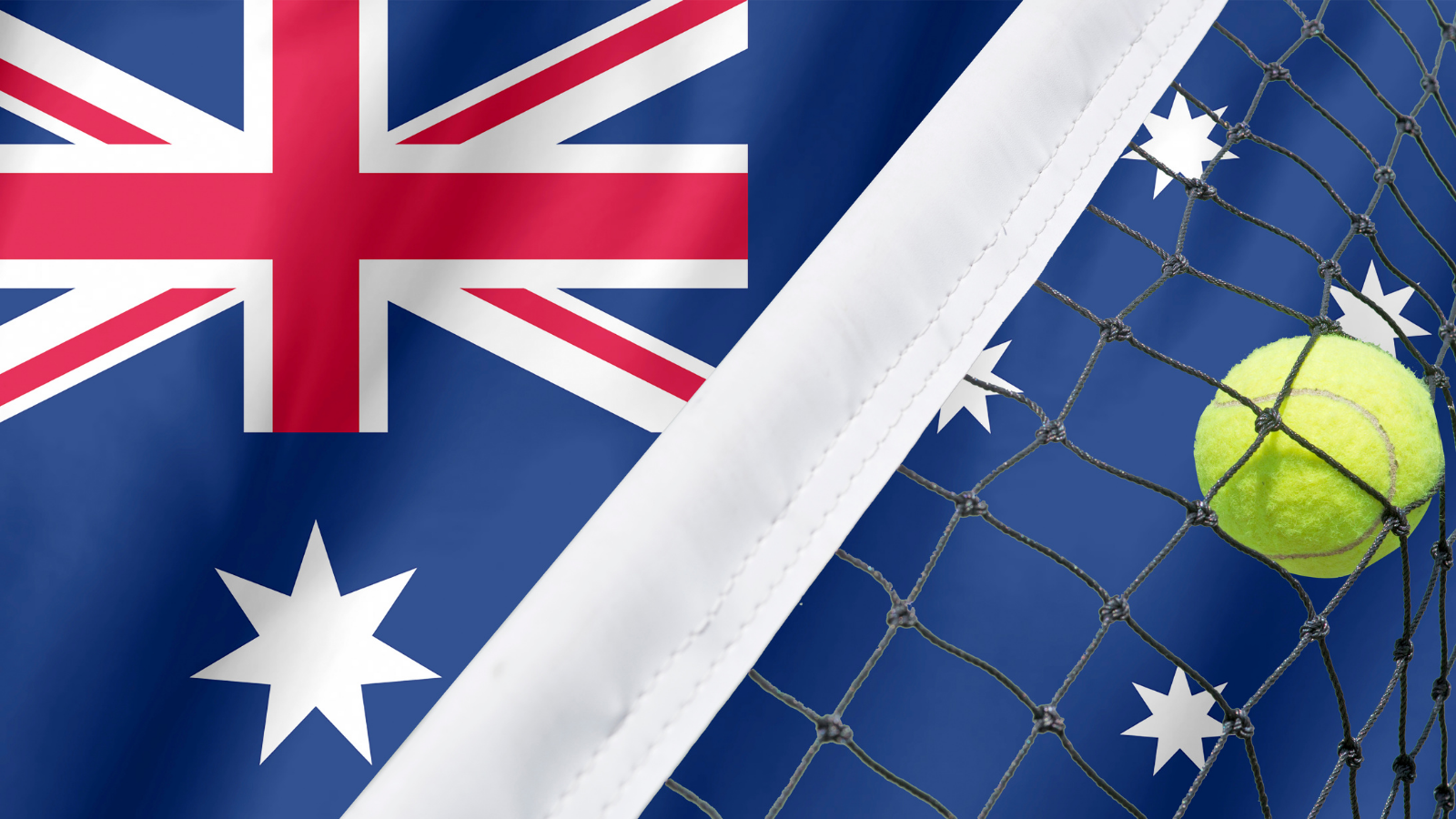AUSTRALIAN OPEN: CONTROVERSIES
The build up to this year’s Australian Open has been a rough one. The tournament was marred in controversy even before the first qualifying match was played.
Starting with Novak Djokovic asking organisers to ease quarantine restrictions for players, Nick Kyrgios calling him a tool for doing so, the tune up tournaments being suspended for a day so that 507 people could be tested because a hotel quarantine worker tested positive for COVID-19 or top players receiving preferential treatment during quarantine, the Australian Open officials have had a difficult couple of weeks trying navigate through the issues.
The silver lining (if there is one) is that the Australian Open is no stranger to controversies and the organisers are adept at handling them. Over the years the Happy Slam has had its fair share of controversial moments on and off the court.
Let’s take a look at some of them:
Nike Bushfire Ad Campaign (2020)
Last year, Nike was heavily slammed on social media after it posted a ‘tone deaf’ ad campaign where it promised its women’s tennis outfits would help players fight ‘fiery conditions’ on the court. The campaign’s timing was unfortunate as Australia was dealing with one of its worst ever bushfire seasons.
Social media users were furious with the ad campaign, which featured 2019 US Open winner Bianca Andreescu, with some calling it ‘disrespectful’.

‘Melbourne also tracks the hottest temperatures of any of tennis’ four majors. Averaging more than 100 degrees (37 degrees Celsius), the heat challenges players and, in turn, NikeCourt’s apparel designers to outduel the fiery conditions,’ the ad read.
The public outcry led Nike to reword the campaign on their website.
“This garment is informed by Atlas body-mapping to identify the areas that tend to overheat (notably under the bra and at the neckline) and is pieced together to maximise breathability in those spaces,” the new write-off said.
Poor air quality and subsequent breathing issues (2020)
The Nike advertisement wasn’t the only gaffe that occurred during the 2020 edition of the tournament. Slovenian tennis player Dalila Jakupovic abandoned a qualifying match after dropping to her knees in a coughing fit as smoke from the nation’s catastrophic wildfires clogged the air.
In an interview to the Associated Press, Jakupovic said it was “not fair” that she’d been asked to play. “I was really scared that I would collapse. I never had breathing problems. I actually like heat. But I just couldn’t breathe anymore and I just fell on the floor,” she said.
Other players also suffered due to the bad air quality during the course of the Slam. Former Wimbledon finalist Eugenie Bouchard asked for medical assistance during her qualifying match while local star Bernard Tomic also needed a medical timeout for breathing issues in his match.
John McEnroe and Martina Navratilova protest against Margaret Court (2020)
In 2020, two of the most outspoken voices in tennis, John McEnroe and Martina Navratilova teamed up to demand the Margaret Court Arena be renamed over her homophobic views.
Court, Australia’s most successful tennis player, has been a consistent critic of LGBT rights and same-sex marriage. In 2012, she opposed proposed same-sex marriage reforms. She has been criticised for such statements by openly gay tennis players Billie Jean King, Rennae Stubbs and Navratilova.

Court’s name adorns the second show-court at Melbourne Park in recognition of her 24-Grand Slam titles – a tally no one has managed to better. However, her controversial views made her a target for McEnroe and Navratilova, who paraded a banner calling for the Margaret Court Arena to be renamed in honour of four-time Australian Open champion Evonne Goolagong.
Federer Roof Controversy (2018)
Roger Federer’s unprecedented 20th Grand Slam came at the 2018 Australian Open trophy. However, the glorious moment was preceded by claims of favouritism.
Accusations that tournament officials had handed Federer an easy passage to the final had been doing the rounds as the Swiss played only once in Melbourne’s searing hot conditions in the day. To add to that, organisers decided to close the roof for the final match between Federer and Marin Cilic after temperatures reached a high of 37.7 degrees Celsius in Melbourne’s sporting precinct at 6:30pm, just an hour before the match was set to begin. However, temperatures had reached levels even higher than that earlier in the tournament and the heat policy had not been implemented.
The roofs of the main showcourts at Melbourne Park are usually only closed unless the extreme heat policy is put into effect, which is when the temperature exceeds 40 degrees Celsius and a humidity threshold, the Wet Globe Bulb Temperature (WGBT), is reached.
The decision played into Federer’s hands with the conditions perfect for him to showcase his best tennis – outside of the heat.
Former Wimbledon champion Pat Cash, while commentating for BBC radio, declared the call would benefit Federer. “It’s an outdoor tournament — it’s like Wimbledon. Why is the roof closed? The way Roger plays, he swings so hard at the ball and takes it so early, any wind or variation of the ball moving will take it away from him. It’s why he’s one of the best players ever indoors,” he said.
Other former and current players also tweeted their confusion at the call. “I can’t believe they’ve closed the roof,” Jamie Murray, the brother of three-time Grand Slam champion Andy Murray, said. While former US Open finalist Greg Rusedski tweeted “Absolutely ridiculous that the roof is closed for the Australian Open. GS are outdoor events. Yes, it’s hot but the court is under shade and an evening match.”
AO organisers later released a statement explaining that having reached the Wet Bulb Globe Temperature (WGBT) threshold, the decision was made to close the roof.
Maria Sharapova failed Dope Test (2016)

On 7 March 2016, five weeks after the conclusion of the Australian Open, five-time Grand Slam winner Maria Sharapova announced that she had failed a drug test following her quarter-final defeat to Serena Williams on January 26. The Russian player confessed to taking the substance meldonium, which was placed on the World Anti-Doping Agency’s list of banned substances on January 1, 2016. She was suspended for two years (later reduced to fifteen months on appeal), backdated to January 26, and was subsequently docked the $A375,000 she earned for reaching the quarter-finals.
Twirlgate (2015)
To twirl or not to twirl? That was the question at the 2015 Australian Open. Following a second-round victory in the women’s singles event, Eugenie Bouchard was approached by interviewer Ian Cohen, who cited tweets made by the Canadian that complimented fellow competitor Serena Williams’s on court attire.
Explaining that Williams “was kind enough to give us a twirl,” Cohen went on to ask Bouchard to do the same. Though she obliged, the request was met with criticism, with many accusing the interviewer of being sexist. The controversy was referred to by some media outlets as “twirlgate.”
Billie Jean King responded to the interview by saying “This is truly sexist. If you ask the women, you have to ask the guys to twirl as well.” For her part, Bouchard said the request would not be sexist if men were asked to “flex their muscles and stuff.” At least one media outlet pointed out that as part of a pre-tournament interview Rafael Nadal was asked to take off his shirt for the enjoyment of female fans.
Victoria Azarenka gamesmanship accusations (2013)
2013 champion Victoria Azarenka was widely condemned for taking what appeared to be a dubious medical timeout in the final moments of her tense two-set semi-final win over the America’s Sloane Stephens.
Azarenka was up 6-1, 5-3, and serving for a place in the final. At 40-15, it seemed that the match was inevitably at its end. But Stephens saved five match points. The American then manufactured a break point and converted it.
Back on serve at 5-4, and heading to their chairs for the changeover, Azarenka called for the trainer and then left the court. It wasn’t for another 10 minutes that she returned to play. On return, the Belarusian immediately broke Stephens to win the match and advance to the finals, where she defeated Li Na to clinch the title.
Later, Azarenka vehemently denied indulging in gamesmanship and claimed a rib injury that had troubled her for two days flared in the sixth game of the second set, restricting her breathing.
“I had to unlock my rib, which was causing my back problem. I should have called the trainer a little bit before that, when I got to the point that I couldn’t really breathe. The timing, yeah, it was my bad,” she said.
However, in the on-court television interview immediately after the match, when asked specifically why she had left the court and she said: “I had nearly the worst choke of the year.” She spoke of “anxiety” but did not mention a sore rib or being unable to breathe.
John McEnroe thrown out of the Australian Open
In the 1990, the legendary John McEnroe, known as “Superbrat” because of constant arguments and badmouthing of umpires and linesmen, was disqualified for misconduct while playing against Sweden’s Mikael Pernfors. The American became the first man since 1963 to get disqualified in Grand Slam for misconduct.
In the third set, during the changeover, McEnroe had stood in front of the lineswoman and glared at her for what he thought was a bad call. The chair umpire, Gerry Armstrong, gave him a conduct code violation for unsportsmanlike conduct.
In the fourth set, McEnroe, who was leading in the match 6-1 4-6 7-5 2-4, threw his racket to the ground, where it bounced on the court’s hard surface as a result the chair umpire called for another code violation this time for racket abuse, leading McEnroe to swear at him.
Armstrong then defaulted McEnroe under instruction from the tournament supervisor, Ken Farrar. “Default Mr. McEnroe. Game, set, match.” Armstrong said, calling a third and final code violation. It was the first time a player had been defaulted from a Grand Slam tournament match in the open era.
Written By
Nikita

